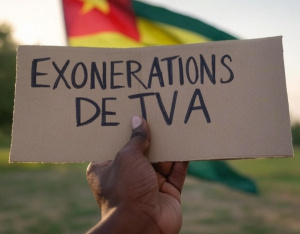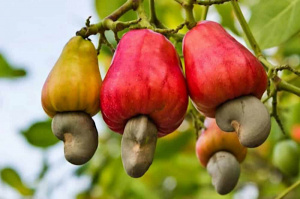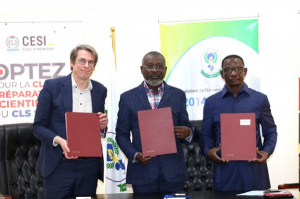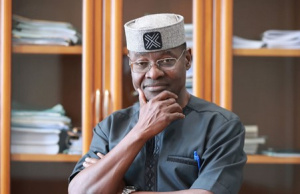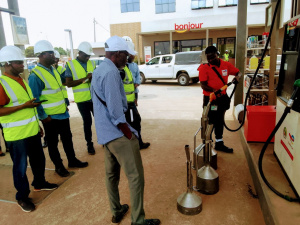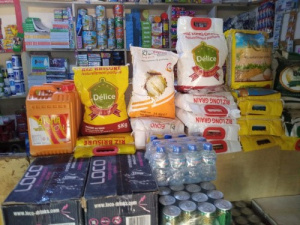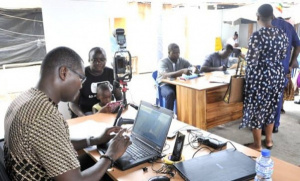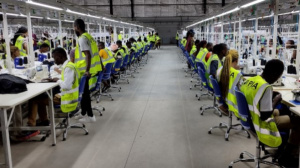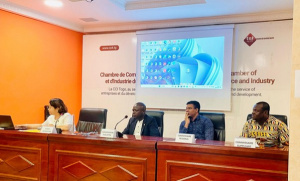Togo First
Togo Considers IMF’s Suggestion to Reduce VAT Exemptions
In response to the International Monetary Fund’s (IMF) suggestion to cut VAT exemptions to boost its public revenue, Togo plans an in-depth audit of its tax system, before making any changes.
In its latest report, the IMF urged Togo to reform its tax framework to increase public revenue. Key suggestions include reducing VAT exemptions, extending personal income tax (IRPP), and aligning with the global minimum tax for certain companies. Among these, VAT exemptions are the primary focus.
In 2023, VAT exemptions cost the Togolese government CFA60.8 billion—42.4% of total tax expenditure, or 2.6% of GDP. This figure is significant given Togo’s efforts to improve public revenue collection. In 2022, CFA40.8 billion in VAT revenue was also lost due to exemptions.
Despite the IMF’s push, Togo is taking a cautious approach. Authorities fear that abruptly removing VAT exemptions could harm certain sectors and raise living costs. To address this, the government plans to assess VAT exemptions by June 2025 to identify which ones benefit low-income households and which primarily help businesses or wealthier groups.
The goal is to differentiate between “progressive” exemptions that support vulnerable populations and “regressive” ones that favor higher-income groups or specific industries. However, reducing exemptions would likely mean higher taxes on some goods and services, potentially increasing living costs for households that spend most of their income on consumption. Businesses benefiting from current tax breaks may also face reduced competitiveness as they pass on higher costs to consumers or cut investments.
To offset the potential negative effects of the reduction, the IMF has proposed targeted cash transfers for vulnerable populations. The government is working on a comprehensive medium-term revenue mobilization strategy (SMRMT), expected by June 2026, which could include such measures. This plan will rely on a biometric identification system under development to ensure accurate targeting and avoid duplicate benefits. By the end of 2025, half of Togo’s population and most poor households are expected to be registered in this system.
A Delicate Reform
The debate over VAT reform remains contentious. Some economists argue that VAT exemptions protect low-income households’ purchasing power, while others highlight the revenue loss for the state, which limits its ability to invest in infrastructure and public services.
Another issue is special tax regimes, designed to attract investment but also reduces state revenues. The IMF suggests gradually requiring companies benefiting from these regimes to relocate into special economic zones.
Fiacre E. Kakpo
Togo: New Cashew Marketing Campaign On, Prices Up
Togo launched its 2025 cashew marketing campaign on March 13, 2025, with a significant price increase. The new price is CFA425 per kilogram, up from CFA325 FCFA last year—up by 30%. The sector’s umbrella organization decided the increase on March 12 in Kara, on the sidelines of the second Togo Cashew National Day.
Mawuko Komlan Gozan, President of the Comité Interprofessionnel de la Filière Anacarde du Togo (CIFAT), said the price was raised to protect farmers from market shifts and preserve profitability.
The campaign launch comes with new rules in the sector. For example, farmers, buyers, and processors agreed on a minimum threshold of 20 tonnes before getting approval to move nuts to Lomé. Penalties have been introduced to stop marketing fraud.
At the launch, Hounaké Kossivi, Minister Delegate for Trade, Handicrafts, and Local Consumption, emphasized these measures’ importance for making the sector more organized and resilient.
Last year, Togo produced 34,500 tonnes of cashew, against 41,000 tonnes in 2023, or 16% less year-on-year. Unstable global prices and bad weather were among the factors that spurred the drop.
To address these challenges, stakeholders are working to boost production and increase local processing to capture more value.
Esaïe Edoh
University of Lomé Partners with SIGMA and CESI to Boost Engineering and Research
Over the past weekend, Togo’s University of Lomé (UL) sealed a major deal with SIGMA Scientific Group (Togo) and CESI École d'ingénieurs (France). The partnership aims to enhance engineering education and applied research in various fields, including artificial intelligence, sustainable cities, and energy performance. This move strengthens UL’s push for innovation and global collaboration.
The agreement focuses on key areas, like student and faculty exchanges, dual degree programs, and joint research initiatives. “This partnership reflects our commitment to training skilled professionals and integrating UL into global networks of excellence,” said Prof. Adama Mawulé Kpodar, UL President.
Mama Omorou, founder of SIGMA, highlighted the deal’s broader impact, saying: “By investing in training and innovation, we are building an ecosystem for competitiveness and technological entrepreneurship.”
A few days before, the same week, the UL had discussed with Shandong University in China to deepen their cooperation on scientific innovation.
Ayi Renaud Dossavi
Togo: Ex-Minister of Health Moustafa Mijiyawa Eyes WHO Africa Director Seat
Moustafa Mijiyawa, formerly Minister of Health of Togo, is running for the position of World Health Organization (WHO) Regional Director for Africa.
Togo nominated him, and WHO has selected him alongside four other candidates. The election will take place on May 18, 2025, in Geneva, during the second session of the WHO Regional Committee for Africa.
Mijiyawa was a Minister from 2015 to 2024 and has been a rheumatologist for over 30 years, working in Togo and abroad. His career includes roles in medical education, physiotherapy, and designing prostheses and orthoses. For nearly 20 years, he led the National School of Medical Auxiliaries in Lomé (ENAM) and coordinated a rheumatology program at the University of Lomé as a research professor.
If elected, Mijiyawa will focus on improving public health in Africa. He will lead efforts in disease prevention, control, and building healthcare capacity. His responsibilities will include managing health emergencies like epidemics and working with countries, agencies, and NGOs. He also plans to improve healthcare infrastructure, access to primary care, and training for medical staff.
This election follows the untimely death of Dr. Faustine Ndugulile in November 2024. Ndugulile, a Tanzanian, was the incoming director of WHO Africa.
Esaïe Edoh
HAUQE Cracks Down on Measurement Fraud in Togo
The High Authority for Quality and the Environment (HAUQE) in Togo, through its technical agency, the Togolese Metrology Agency (ATOMET), conducted surprise inspections at service stations in Greater Lomé on March 11, 2025. Inspectors checked fuel dispensing meters after rumors of fraud involving inaccurate measurements.
Inspectors randomly selected 11 stations with input from the Togolese Consumers' Association (ATC). Their goal was to ensure compliance with fuel measurement standards.
Bébéi Bataba, ATOMET’s director general, commented: “These checks protect consumers and ensure fair transactions. Every liter paid for must match the quantity delivered. We will continue inspections to maintain transparency.”
Two stations were found non-compliant during the checks. ATOMET sealed their equipment to prevent misuse. Laré Botre, HAUQE’s president, explained, “Station owners will face sanctions under current regulations. To resume operations, they must fix the equipment with their technicians under our supervision. ATOMET will recheck compliance before allowing operations to continue.”
The inspections will expand to other towns across Togo.
Togo: Over CFA1 Billion Distributed to Over 12,000 Farmers in 2024
Last year, the Institut de Conseil et d'Appui Technique (ICAT) provided over CFA1 billion in agricultural financing, benefiting 12,310 farmers, including 4,770 women.
The ICAT’s main mission is to organize producers and integrate them into agricultural value chains. So far, it has helped set up 1,408 cooperatives with nearly 30,000 members. These cooperatives were connected to aggregators, generating CFA4.2 billion in turnover, according to a report cited by Union pour la Patrie.
The ICAT also supported 19,574 farmers with mechanized farming tools, enabling the tiling of more than 37,000 hectares. Additionally, it established 693 school fields and 170 demonstration units to promote modern farming techniques.
Under its modernization strategy, the ICAT monitored 229 Planned Agricultural Development Zones (ZAAP) in 2024. These zones covered 26,502 hectares and involved 27,019 producers, including 11,055 women.
The Togolese government aims to improve these results by 2025 by diversifying funding sources, increasing mechanization efforts, and adopting innovative agricultural technologies. So far, certified seed coverage has risen from 4.2% to 12% for maize and 6% to 15% for rice.
Togo: Inflation Eases Slightly to 2.8% in February 2025
Inflation in Togo eased slightly to 2.8% in February 2025, down from 2.9% in January, according to INSEED data. This minor decline occurred amidst mixed price trends across sectors, with food prices rising and transportation costs dropping.
Sectoral Price Changes
The Harmonised Index of Consumer Prices (HICP), which tracks market costs nationwide, rose by 2.1% year-on-year. The "Food and non-alcoholic beverages" category experienced a sharp increase of 6.8%, while housing, water, electricity, gas, and other fuels rose by 3.7%. Restaurant and accommodation services saw a modest rise of 2.4%. On the other hand, transportation costs dropped by 1.7%, cushioning the overall inflation rate.
Quarterly Trends
Between November 2024 and February 2025, prices increased by 1.4%. Key contributors were food prices (+5.2%) and energy costs (+4.3%). However, declines in imported goods (-2.2%) and services (-0.3%) helped mitigate inflationary pressures.
Despite the slight slowdown in inflation, uncertainties remain regarding future price trends. Factors such as international commodity prices, climate conditions, and regional security challenges could influence inflation in the coming months.
This article was initially published in French by Ayi Renaud Dossavi
Edited in English by Ange Jason Quenum
Togo Brings ID Cards to Women Vendors at Adawlato Market
The Togolese government is taking a bold step to empower women entrepreneurs. On March 11, 2025, a mobile ID operation kicked off at Adawlato Market, issuing national identity cards to female vendors. This initiative, led by the Ministry of Security and Civil Protection in partnership with EPAM, brings essential services directly to informal sector workers.
The campaign, running until March 13, slashes the wait time for ID cards from 15 days to just 48 hours. Somialo Potcholi-Kadja, EPAM’s Managing Director, emphasized, “This initiative simplifies access to vital documents and boosts women’s participation in formal banking.”
By 2022, only 460,000 Togolese women had national ID cards, compared to 866,000 men. This gap hinders their access to bank loans, digital services, and international trade. The government is determined to close this gap and unlock economic opportunities for women.
Ayi Renaud Dossavi
Textile: Star Garments Group Launches Massive Recruitment Campaign in Togo
Star Garments Group Limited is about to start operating at the Plateforme Industrielle d'Adétikopé (PIA). Helped by the National Employment Agency (ANPE), the subsidiary of Charles Komar & Sons is recruiting applicants for training in the textile industry.
The ANPE announced that applications will be accepted until March 21, 2025. Applicants must be Togolese nationals aged between 18 and 35, proficient in French, and have an education level between the fourth and final year of secondary school. They must also be available immediately and willing to undergo professional training before being hired. Applicants are expected to demonstrate impeccable integrity.
The recruitment is part of a larger plan by Star Garments Group to create over 4,500 direct and indirect jobs by 2030, with priority given to women. In July 2024, the company secured $15 million in financing from the International Finance Corporation (IFC) to support its textile and garment production activities in Togo.
Esaïe Edoh
Trade: A Hundred Togolese Business Leaders Headed to China
Nearly 100 Togolese economic operators from various sectors are heading to China from March 13 to 24, 2025. As part of an initiative organized by the Togo Chamber of Commerce and Industry (CCI-Togo) and the Hebei Business Culture Association, the group will look for new business opportunities, that could boost economic ties between the two countries.
During the mission, participants will discover strategic sectors such as mechanical engineering, civil engineering, construction, agriculture, animal husbandry, automobiles, and packaging. They will visit factories specializing in producing pipes and drains, ceramic tiles, and electrical cables, as well as units manufacturing agricultural machinery and car parts.
According to Bekley Esso-Byou, Industry Commissioner at CCI-Togo, the mission gives Togolese businesses a major opportunity to establish solid partnerships with Chinese players in key areas. He reaffirmed CCI-Togo's commitment to helping local entrepreneurs expand internationally, through regular missions to boost their competitiveness.
The trip to China aligns with a memorandum of understanding signed between the CCI-Togo and the Hebei Business Culture Association, to boost trade between Togo and China.
Esaïe Edoh

